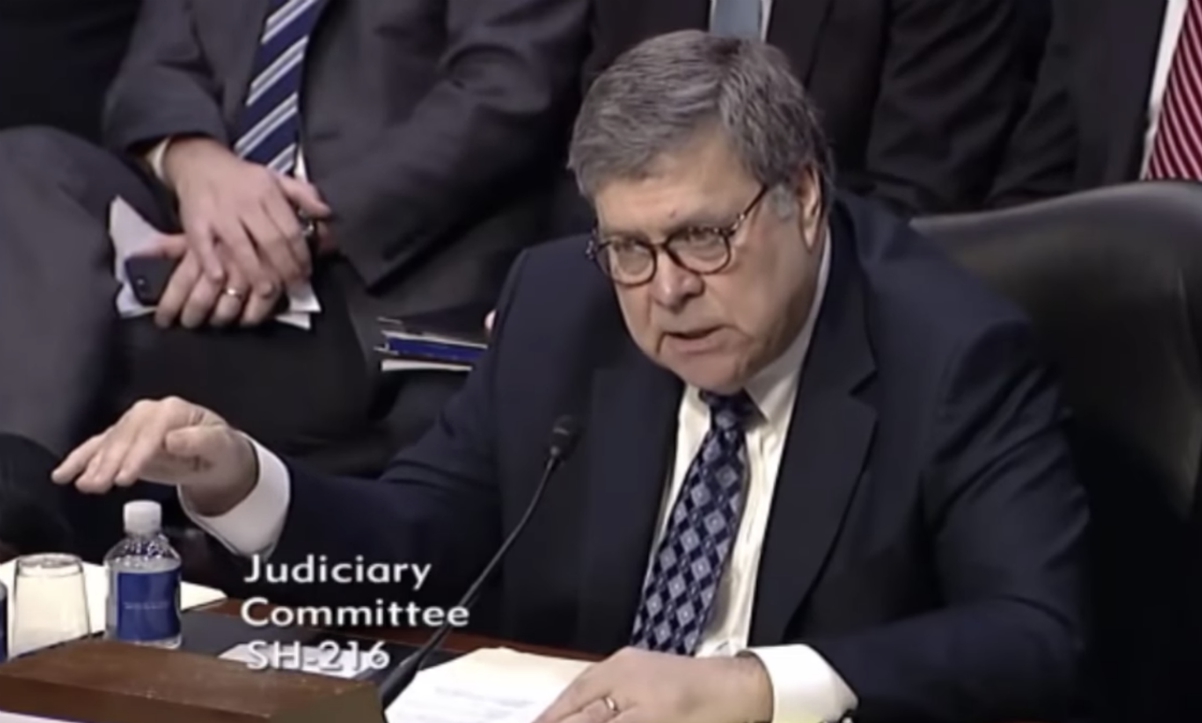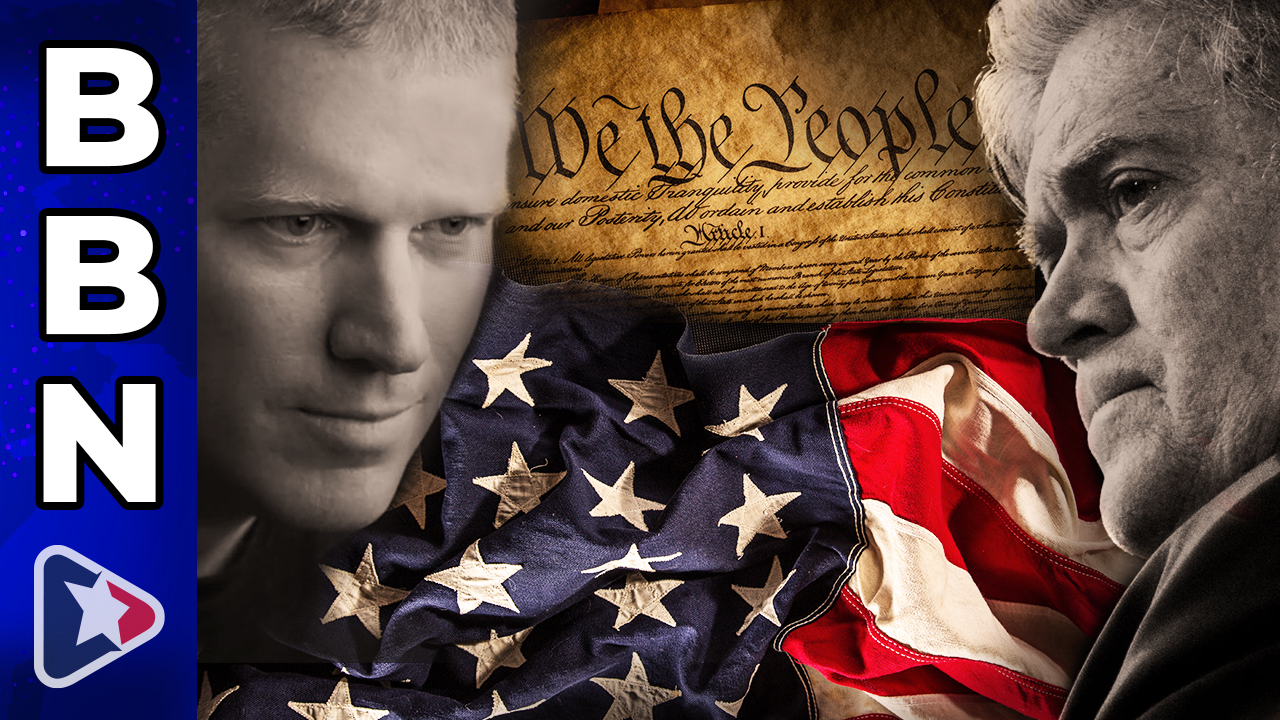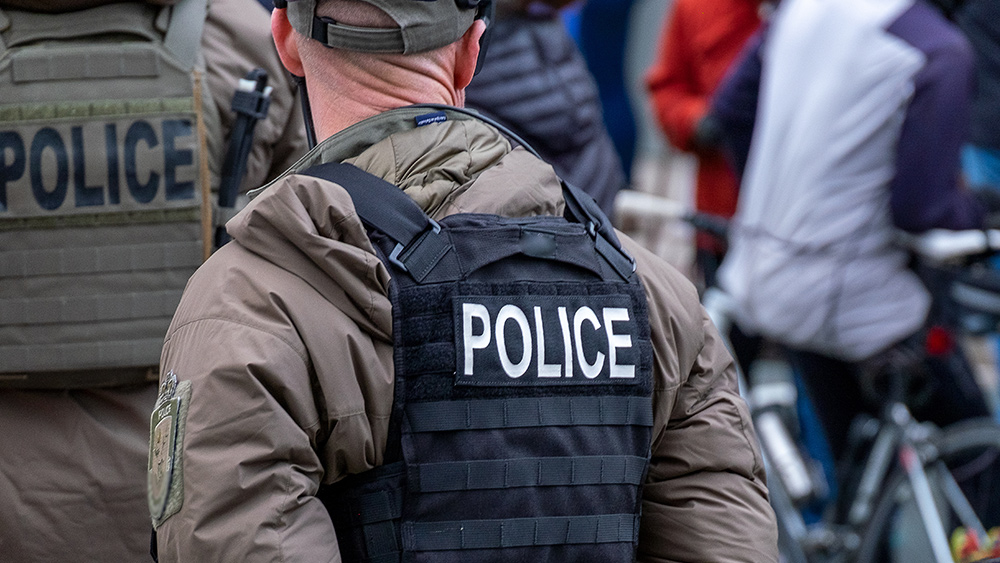
Attorney General William Barr called lockdown measures to prevent the spread of the coronavirus “the greatest intrusion on civil liberties in American history,” comparing it to slavery. He also likened stay-at-home orders to being put under “house arrest” and warned that a medical pandemic “doesn’t give a blank check” to executive rules that infringe on civil liberties.
The attorney general made these comments Sep. 16, during a Constitution Day event hosted by the conservative Hillsdale College. He gave a speech focusing on the role of the Constitution and the Bill of Rights and criticizing the selective application of the law by some district attorneys. Attorney General Barr then answered questions from the audience after delivering his remarks.
Attorney General Barr also disagreed with letting medical professionals decide on business openings and closures during the event. “The person in the white coat is not the grand seer who can come up with the right decision for society,” he said, adding that a free people makes its decisions “through its elected representatives.” His statement elicited applause from audience members.
Barr: A staunch opponent of liberty-infringing lockdowns
The head of the Department of Justice has been a vocal critic of coronavirus lockdowns for some time now, as such measures infringe on civil liberties.
In April, he released a memorandum exhorting Justice Department prosecutors to watch out for state and local regulations that possibly violate “the constitutional rights and civil liberties of individual citizens. The document added that despite the implementation of policies “unthinkable in regular times,” no crisis or pandemic will nullify protections enshrined in the U.S. Constitution.
During a May question and answer session on Twitter, the attorney general said that state and local governments had the right to impose “reasonable and temporary restrictions” during times of emergency, but they must justify why these restrictions are “truly necessary.” Furthermore, he mentioned that the Justice Department “will be on the lookout for restrictions that are too widespread, too generalized or unduly discriminatory towards liberty” and will undertake appropriate action once a rule infringes civil liberties.
“Now that the curve has been flattened and the hospital system has not been overwhelmed, it is time to start rolling back some of those restrictions,” Barr emphasized.
Coronavirus lockdowns violate people’s fundamental rights
Some federal judges are of the same opinion as Barr: Lockdown orders issued by state and local governments violate the fundamental rights of citizens guaranteed by the Constitution.
A Sep. 14 ruling by District Judge William Stickman IV found that coronavirus lockdown orders by Pennsylvania Gov. Tom Wolf and Health Secretary Dr. Rachel Levine were unconstitutional. The order limiting mass gatherings violated the right of assembly guaranteed in the First Amendment while orders instructing non-essential businesses to remain closed and people to stay home violated clauses in the Fourteenth Amendment, according to Stickman.
He also added that restrictions put in place during periods of emergency may remain long after they have passed, and any liberties relinquished during such times may be hard to regain.
Meanwhile, District Judge Gary Sharpe found that coronavirus restrictions implemented by New York Gov. Andrew Cuomo, New York Attorney General Letitia James and New York City Mayor Bill De Blasio in July were unconstitutional. In his decision, Sharpe ruled that the restrictions limiting indoor religious gatherings violated the First and Fourteenth Amendments and discriminated against religious individuals by limiting their opportunities to gather and worship.
As a result of Sharpe’s ruling, the state of New York has permitted indoor religious services up to 50 percent capacity – but with other public health protocols such as social distancing in place.
The Constitution guarantees freedom for all U.S. citizens, whether or not a pandemic is in place, and no state or local order in the name of public health will supersede it.
Sources include:
Justice.gov 2 [PDF]
Please contact us for more information.















